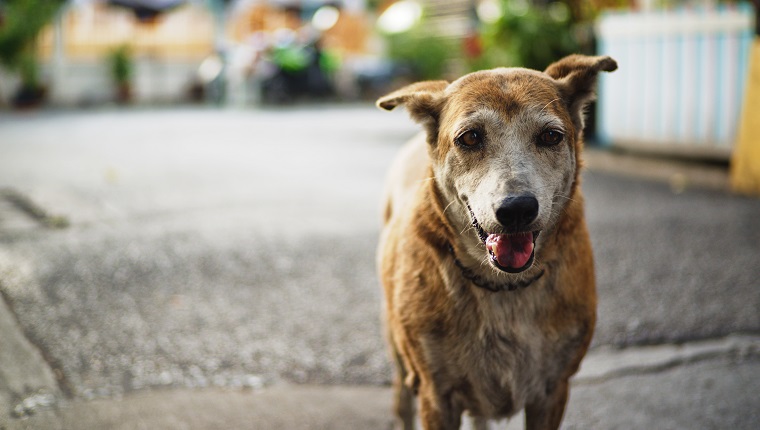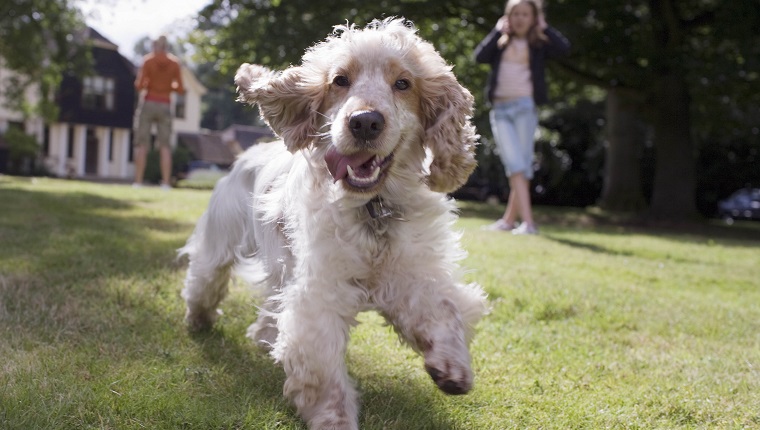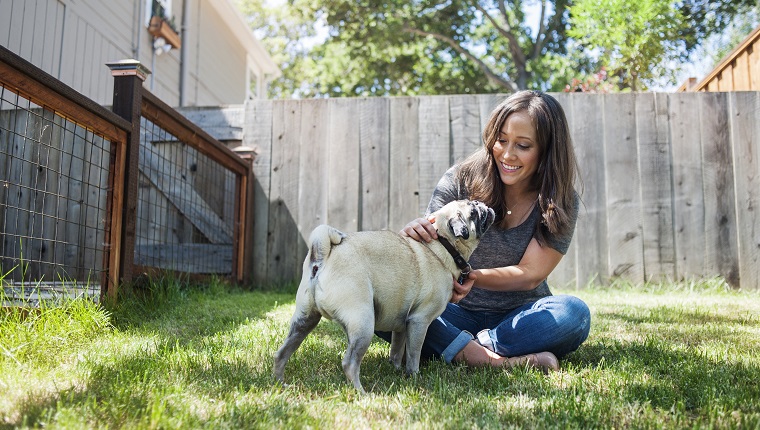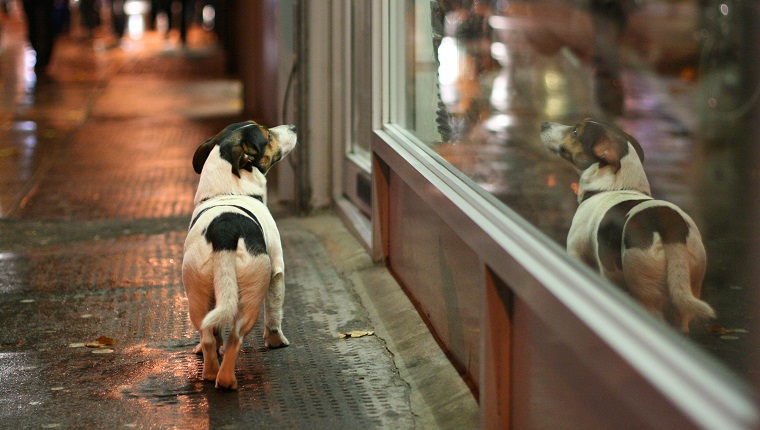Dogs may try to escape from their homes and bolt for many reasons. Maybe your pooch regularly runs past you when you open your front door, or maybe they try to dig under or climb over the backyard fence.
At best, the problem is a nuisance. At worst, it can be fatal. Dogs who escape can run into traffic, encounter dangerous wildlife, face dognappers, or come across any number of hazardous, deadly situations.
Fortunately, an escaping habit is treatable, mostly by making your dog’s world as interesting and fulfilling as possible. But no matter how much of a homebody they seem, it’s wise to do everything you can to prevent an escape. The risk is too high that your dog could wind up hurt, fatally injured, or lost forever.
Here’s what you should know about your dog’s escaping habit and how to treat it.
Why Does Your Dog Keep Trying To Escape?

Boredom, isolation, and sexual roaming are most often the motives in dogs’ habitual attempts to escape or run away.
Not surprisingly, spayed or neutered dogs who receive plenty of exercise and lots of attention from their humans are the least likely to become four-legged escape artists. A happy dog who feels like part of the family will usually want to stick around.
A couple of caveats to keep in mind, however: Some breeds — such as Border Collies, who are bred to herd sheep — truly enjoy “working” and will go looking for tasks in the absence of being given any.
Other breeds, like Siberian Huskies, are notorious “Houdini” dogs who will try to escape for any reason at all. In fact, some might see your escape prevention efforts as challenges to thwart. They may try it just because it’s more fun than whatever else they were doing.
And puppies and adolescent dogs are especially prone to wanderlust if they don’t have sufficient outlets to release their energy. Of course, almost any canine will follow their nose if the scent is powerful enough — important to remember when your neighbors are barbecuing.
Dog breeds with high wanderlust potential and prey drives may be more naturally inclined to chase wildlife, wherever they may find it.
Other dogs bolt out of fear or anxiety. This is especially common during thunderstorms, fireworks celebrations like the 4th of July, and other times when loud noises spook them. If that’s the case, you may need to bring your dog to the vet for noise anxiety treatment recommendations.
How To Reduce Your Dog’s Urge To Escape

Ultimately, you should consult your veterinarian or a professional pet behaviorist for advice on how to keep your dog happy, healthy, and home.
There are, however, a few steps you can take to remedy your dog’s desire to escape:
- Spend time with your dog. Make sure they feel comfortable in their home and attached to members of the household.
- Train your dog. Learning new tricks and commands will keep them from growing bored and seeking their own fun elsewhere. Teaching them a reliable recall will also help you call them back to you if they start to run away.
- Provide plenty of exercise, both mental and physical. A tired dog is a happy dog. If necessary, hire a pet sitter or dog walker to help out when you can’t provide enough exercise on your own.
- Give your dog a variety of indoor and outdoor toys, and rotate in different ones from time to time. They don’t have to be brand new. Your dog won’t care if the toys have been chewed on or batted around; the novelty is what’s important.
- Arrange for supervised play dates if your dog loves the company of other canines, but there aren’t any others in your home. They’ll be less inclined to search out other dogs if they have regular access to their buddies.
- Spay or neuter your dog before they reach sexual maturity, typically at about six months of age. This is by far the best way to keep sexual roaming to a minimum.
How To Prevent Dogs From Escaping

The best way to keep your dog from running away is to create a strong, healthy bond between the two of you. Spend time training them, walk them every day, and give them the attention they deserve.
In essence, make sure your dog knows they’re a beloved part of the pack.
That said, there are a few other measures you can take to prevent your dog from escaping:
- Don’t leave your dog alone for extended stretches. If you need to be away for hours at a time, plan to hire a dog walker or find a reputable doggy daycare. Escape artists shouldn’t go unsupervised for long.
- Don’t make it easy for them to escape. Even if they’ve been impeccably trained, remind yourself that they’re a dog, and they have strong canine instincts. If you know they take off at the faintest whiff of a squirrel, make sure your yard has a secure fence, and keep them on leash in any open area.
- If your dog flees due to fear of loud noises, take steps to make them comfortable. Provide them with a safe space in your home, keep them indoors during loud events like storms or fireworks, and talk to your vet about further treatments.
- Consult a pet behaviorist. If you can’t curb your dog’s escaping habit on your own, then you must ask a professional. Your dog’s safety may depend on it.
Has your dog ever attempted to escape from your home? How did you put a stop to the behavior? Let us know in the comments below!









